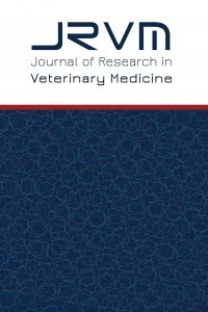Güncel Metasezgisel Algoritmalar İçin Kaos Tabanlı Yaklaşımlar
THE CHAOS-BASED APPROACHES FOR ACTUAL METAHEURISTIC ALGORITHMS
___
- Alatas, B., Akin, E. and Ozer, A. B. (2009) Chaos embedded particle swarm optimization algorithms, Chaos, Solitons Fractals, 40(4), 1715-1734. doi: 10.1016/j.chaos.2007.09.063
- Civicioglu, P. (2013) Backtracking search optimization algorithm for numerical optimization problems, Applied Mathematics and Computation, 219(15), 8121-8144, 2013. doi: 10.1016/j.amc.2013.02.017
- Dogan, B. and Olmez, T. A. (2015) A new metaheuristic for numerical function optimization: vortex search algorithm, Information Sciences, 293, 125-145. doi: 10.1016/j.ins.2014.08.053
- Gandomi, A., Yang, X-S., Talatahari, S. and Alavi, A. (2013) Firefly algorithm with chaos, Communications in Nonlinear Science and Numerical Simulation., 18(1), 89-98. doi: 10.1016/j.cnsns.2012.06.009
- Geem, Z., Kim, J. and Loganathan, G. (2001) A new heuristic optimization algorithm: harmony search, Simulation, 76(2), 60-68. doi: 10.1177/003754970107600201
- Goldberg D. E. (1989) Genetic Algorithms in Search, Optimization and Machine Learning, Addison-Wesley Longman Publishing, USA.
- Kellert, S. (1993) In the Wake of Chaos:Unpredictable Order in Dynamical Systems, University of Chicago Press, USA.
- Kennedy J. and Eberhart R. (1995) Particle swarm optimization, IEEE International Conference on Neural Networks, 1942-1948. doi:10.1109/ICNN.1995.488968
- Li, Y., Deng, S. and Xiao, D. (2011) A novel hash algorithm construction based on chaotic neural network, Neural Computing and Applications, 20(1), 133–141. doi: 10.1007/s00521- 010-0432-2
- Li-Jiang, Y. and Tian-Lun, C. (2002) Application of chaos in genetic algorithms, Communications in Theoretical Physics, 38(2), 168. doi: 10.1088/0253-6102/38/2/168
- Liang, J. J., Suganthan, P. N. and Hernandez-Diaz, A. G. (2013) Problem definitions and evaluation criteria for the CEC 2013 special session on real-parameter optimization, Zhengzhou University and Nanyang Technological University, 3-18. Technical report:201212
- Mirjalili, S., Mirjalili, S. M. and Lewis, A. (2014) Grey wolf optimizer, Advances in Engineering Software, 69, 46-61. doi: 10.1016/j.advengsoft.2013.12.007
- Pecora, L. and Carroll, T. (1990) Synchronization in chaotic system, Physical Review Letters, 64(8), 821-824. doi: 10.1103/PhysRevLett.64.821
- Saremi, S., Mirjalili, S. M. and Mirjalili, S. (2014) Chaotic krill herd optimization algorithm, Procedia Techno, 12, 180-185. doi: 10.1016/j.protcy.2013.12.473
- Schuster, H. G. and Just, W. (2006) Deterministic chaos: an introduction, John Wiley & Sons, Germany.
- Storn, R. and Price K. (1995) Differential evolution: A simple and efficient adaptive scheme for global optimization over continuous spaces, International Computer Science Institute, 1- 12. Technical report:TR-95-012
- Wang, N., Liu, L. M. and L. L. Liu. (2001) Genetic algorithm in chaos, Or Transactions, 5(5), 1-10.
- Wang, L. and Zhong, Y. (2015) Cuckoo search algorithm with chaotic maps, Mathematical Problems in Engineering, 6(6), 546-554. doi: 10.1155/2015/715635
- Wang,, G.-G., Guo, L., Gandomi, A., Hao, G.-S. and Wang, H. (2014) Chaotic krill herd algorithm, Information Sciences, 274, 17-34. doi: 10.1016/j.ins.2014.02.123
- Wolpert, D. H. and Macready, W. G. (1997) No free lunch theorems for optimization, IEEE Transactions on Evolutionary Computation, 1(1), 67-82. doi: 10.1109/4235.585893
- Yang, X-S. (2010) Nature-inspired Metaheuristic Algorithms, Luniver Press, UK.
- Yang, X-S. and Deb, S. (2009) Cuckoo search via L´evy flights, Proceeding of World Congress on Nature Biologically Inspired Computing, 210-214, doi: 10.1109/NABIC.2009.5393690
- Yao, J. F., Mei, C., Peng, X. Q., Hu, Z. K. and Hu, J (2001) A new optimization approachchaos genetic algorithm, Systems Engineering, 1, 1-5.
- Zaharie, D. (2003) Control of population diversity and adaptation in differential evolution algorithms, Mendel 9th International Conference on Soft Computing, Brno, 41-46.
- Zhenyu, G. Bo, Y. C. and Min, C. B. (2006) Self-adaptive chaos differential evolution, International Conference on Natural Computation, 972-975. doi: 10.1007/11881070_128
- ISSN: 2148-4147
- Yayın Aralığı: 3
- Başlangıç: 2002
- Yayıncı: BURSA ULUDAĞ ÜNİVERSİTESİ > MÜHENDİSLİK FAKÜLTESİ
ANALYSIS OF SURFACE PLASMON RESONANCE SENSING BASED ON PHASE-DETECTION IN THE INFRARED RANGE
Esin BOZKURT KURT, Aycan ERİM, Saffet ALTINDAĞ
ALİME ÇITAK, HALİT LEVENT HOŞGÜN
ALİ HÜSNÜ BADEMLİOĞLU, AHMET SERHAN CANBOLAT, ÖMER KAYNAKLI
Personel Seçimi İçin Sezgisel Bulanık Sayı Temelli Grup Karar Verme Yaklaşımı
GAZLI PARÇACIK DETEKTÖRLERİNİN ÇALIŞMA VERİMİ VE KARARLILIĞININ İNCELENMESİ
BİR PAKET GIDA ÜRETiM İŞLETMESĠNDE TAGUCHİ PARAMETRE TASARIMI İLE ÇOK YANITLI ENİYİLEME
